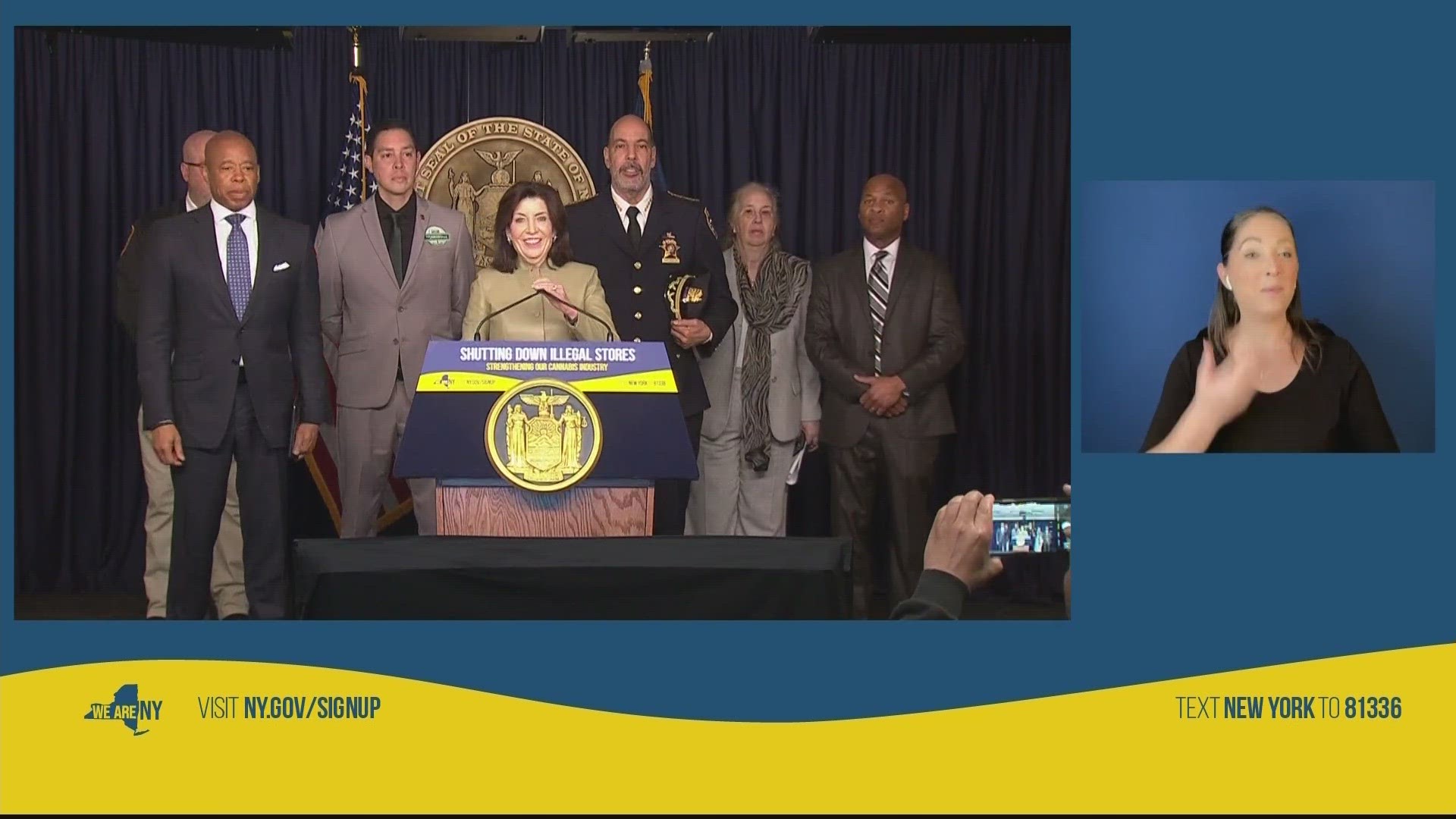ALBANY - The long-fractured Democrats of New York's state Senate have finally brokered a peace deal, clearing a major hurdle that has kept them from taking control of the chamber in the past.
The reunification of the mainline Senate Democrats and the breakaway Independent Democratic Conference on Wednesday could be the impetus for a brutal power battle with Republicans should a pair of key special elections go the Democrats' way this month.
It ended a seven-year, intra-party war and could have rippling implications on the policies and pocketbook issues that affect everyday New Yorkers.
Confused about what's going on? Here's some help.
What's at stake?
The short answer: Control of the Senate, the upper house of the state Legislature.
Republicans have controlled the chamber for all but two years since World War II.
They have often acted as a foil to Democratic governors and the Democrat-heavy Assembly when they attempt to approve policies and and taxes favored by those on the political left.
Just last month, Republicans blocked various taxes and fees proposed by Gov. Andrew Cuomo from the state's new $168 billion budget.
They also rejected measures that would have bolstered abortion protections and eliminated cash bail for misdemeanors and some non-violent felonies.
But the Republicans' grip on the 63-seat Senate is tenuous, at best: They maintain a one-vote majority with the aid of Sen. Simcha Felder, a Brooklyn Democrat who sits with the GOP.
What happened Wednesday?
The Democrats in the Senate agreed to play nice after factions had been warring since 2011.
That year, Sen. Jeff Klein, D-Bronx, and three of his Democratic colleagues, including Sen. David Carlucci of Rockland County, split off to form the Independent Democratic Conference, or IDC.
The conference — which eventually grew to have eight members — seceded from the mainline Senate Democratic conference and actually partnered with Republicans in 2013 and 2014 to share control of the chamber, keeping the other Democrats out of control and angering many of those on the left.
That changed Wednesday, when Klein agreed to dissolve the IDC and rejoin the Senate Democrats, coalescing behind Senate Democratic Leader Andrea Stewart-Cousins, D-Yonkers.
The move came amid pressure from Cuomo's primary opponent Cynthia Nixon, who has criticized him for not doing more to bring Democrats together, and amid liberal Democrats planning primaries against IDC members.
"My colleagues in the Independent Democratic Conference all believe that unity cannot wait until a special election," Klein said. "The place is here, the time is now."
So Democrats are taking over?
Not so fast. Several things would have to happen first.
First, Democrats would have to win two key special elections for vacant Senate seats on April 24.
One is for a seat in the Bronx, a Democratic stronghold. The other is in Westchester County, where Democrat Shelley Mayer and Republican Julie Killian are squaring off for the seat vacated by County Executive George Latimer.
If Democrats win both, there would be 32 enrolled Democrats and 31 Republicans in the Senate — enough for a razor-thin Democratic majority.
But there's still the matter of Felder, who has sat with the GOP since he took office in 2013. He could swing control to either party, and so far he's not tipping his hand.
In an interview, Stewart-Cousins said she has reached out to Felder since Wednesday's news but hasn't connected.
"I've always kept in touch with Simcha Felder," she told the USA TODAY Network's Albany Bureau. "We actually have a decent relationship, and of course I put in a call to him."
If Democrats don't win both special elections or Felder doesn't rejoin the fold, they would turn their efforts to November, when all 63 Senate seats will be on the ballot.
What would Democrats pass?
On paper, a Democrat-led Senate would clear the way for a variety of progressive-favored policies and issues to take hold in New York, given that Cuomo is a Democrat and the party dominates the Assembly.
Cuomo and legislative Democrats, for example, have called for a variety of voting reforms, including allowing early voting that would clear the way for voters to cast their ballot prior to Election Day.
Democrats have also pushed for measures that would install federal abortion rights in state law and allow college-tuition aid to go to those without legal immigration status — measures staunchly opposed by the GOP.
But a Democrat-led Senate wouldn't automatically mean those issues would pass.
If Democrats hold only 32 votes, they would have to stay completely unified for the measures to pass.
That's not a given, especially considering Felder leans conservative on many issues.
Will the Democrats' peace deal hold?
It's not a given either.
There's plenty of bad blood between Senate Democrats and the former IDC members.
And a similar 2014 peace deal fell apart when Democrats failed to win enough seats to take a majority that year.
Stewart-Cousins, however, said she believes both sides are "willing to make it work."
"I think everybody feels the same way," she said. "This has been a very tiring situation that was doing no good for any of us, collectively anyway."



